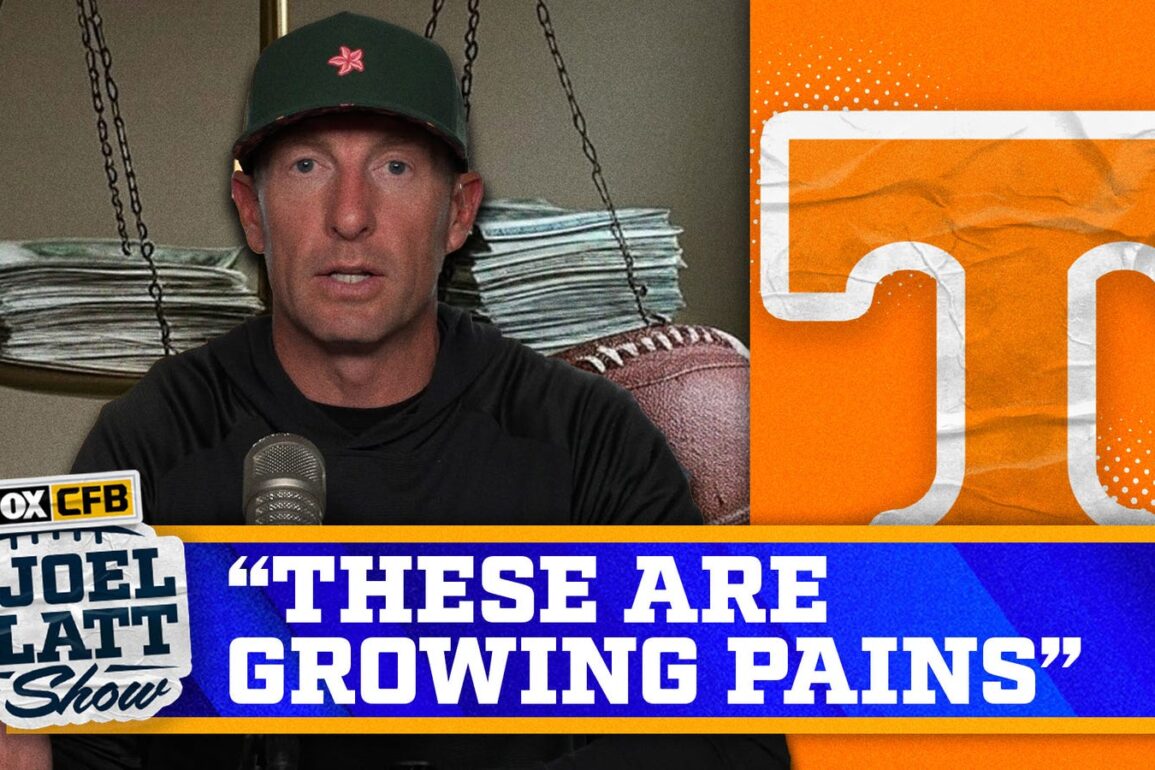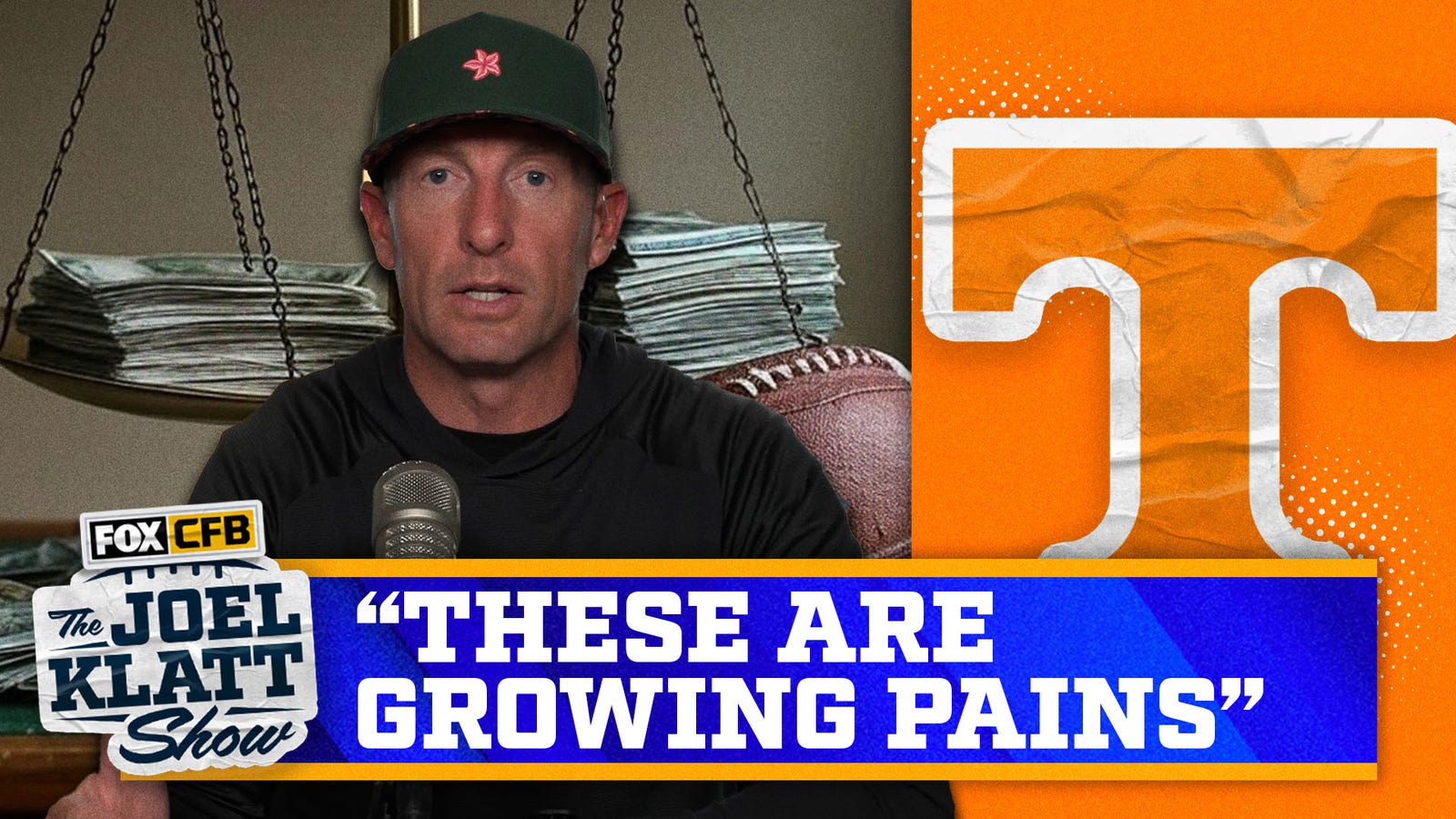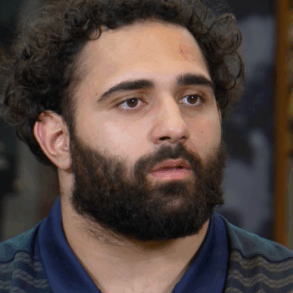In a move that came as a bit of a surprise, Tennessee quarterback Nico Iamaleava opted to enter the transfer portal this past weekend after helping the Volunteers reach the College Football Playoff last season.
The 20-year-old reportedly held out from spring practices while asking for $4 million in name, image and likeness (NIL) money prior to making the decision, which has seemingly left many football fans upset and frustrated.
If you remember, Iamaleava’s commitment to Tennessee as a high school recruit also came with some NIL drama. He committed to the Vols after reportedly receiving an NIL package somewhere between $8 and $9 million for the duration of his time in Knoxville, which seemed outlandish at the time. Now, Iamaleava is asking for more, and I’m excited to talk about the issue.
I don’t think Iamaleava is the villain that everyone wants to make him out to be, and I do think that there are other factors at play beyond the extra NIL money. Iamaleava’s move serves as the latest lightning rod of a much larger conversation about the era we’re in with college football. A lot of people immediately went, “Well, this sucks, it’s broken and ruined,” but this is an example of some growing pains.
ADVERTISEMENT
Of course, that doesn’t mean this doesn’t hurt, or that it isn’t unpleasant. It just means that you’re going to have to go through some of this chaos to get to a different place. College football is going to have to go through some of these growing pains to get where it needs to go. That was the overarching thought I wanted to share about Iamaleava before looking at his decision to transfer through some more specific points.
This was inevitable.
The only thing that should be surprising about the Iamaleava situation is that it took this long to get here. The overwhelming majority of players transferring during the spring window are doing so because of an NIL dispute or because they’re chasing more money. The other section of players likely lost a competition for a starting job. As Nick Saban told us on his way out the door, players are concerned with two things: their value and how much money they’re making. Those two things are intertwined, which is why I listed value first, because that’s how you make your money.
What’s unique about this, though, is that a team finally said no, and that player held his ground. I know star players at prominent programs have gone to their teams in the past and asked for more money because they believe they’ve earned more, only to remain with the program when they’ve been told no, but Tennessee coach Josh Heupel said Saturday that there’s “no one bigger than the Power T — that includes me.”
No one was in the wrong here.
I’m kind of proud of what Tennessee did in this situation, and Iamaleava was totally within his rights. I’ve heard that this isn’t just about money, even though that’s where the story has landed. Iamaleava is just a one-man band here, whereas Tennessee has an entire apparatus to help control the narrative, pitting one player against a whole team.
Iamaleava was just playing with the rules. The fact that he held his ground also indicates to me that there’s more than money at play here, too.
The NCAA’s failure to govern created this.
The NCAA totally failed when it came to adjusting to NIL and the transfer portal. It buried its head in the sand and wanted to retain a model that was archaic until it was essentially litigated that it had to change and enforce rules that were on the books about boosters, play-for-play and other things.
So, now the NCAA’s in a void. Tennessee helped create this void when the NCAA tried to enforce infractions surrounding Iamaleava’s recruitment, among others. Tennessee sued the NCAA, causing the organization to send a memo where it practically threw up its hands and said it’s no longer going to enforce anything when it comes to NIL.
Players, be careful what you wish for.
Players, understandably, want their value and to wield the leverage to maximize that value and get it on the market, via the transfer portal. Players should want leverage, but they want it all the time at no cost. They have to be careful with that. The pendulum has swung so far back to the players that there will be a reaction, and it will swing back to the schools at some point. Maybe this is an inflection point for that because this is the first time it feels like a school has said no to a player.
What players shouldn’t be leery of isn’t a no, though. They should be leery of a situation where a program believes they’ve underperformed and that their services are no longer needed. I don’t want to get into a situation like that, and the players shouldn’t want that to happen either.
Programs and athletic directors should feel free to tell coaches no, too.
We’ve seen situations like Iamaleava’s play out in college football for decades, but with coaches instead of players. We’ve seen coaches wield this leverage over their programs and fan bases for years. They’ve used emotional leverage to their advantage when a prominent position opens, generating millions upon millions because of it.
If you go back to where coaching salaries were 10 to 20 years ago, here’s what you’ll have learned: The agents in this business started to understand that athletic directors were going to make emotional decisions. All those agents needed was a prominent head coach vacancy, leading every agent to run to athletic directors and say, “That school really wants your coach. You should pay him a lot more money so he can stay.”
So, if I’m saying good on Tennessee for holding the line in this situation, I’ve got to be consistent. I’ve been begging athletic directors and programs to tell coaches no for years. When Jimbo Fischer holds Texas A&M over the coals because LSU is open to the tune of over $90 million, that’s ridiculous.
Now that players are doing this, I don’t want to hear crocodile tears from coaches. Heupel has coached everywhere and played at Oklahoma. Let’s just call a spade a spade. Loyalty isn’t what it used to be. Which is fine, just as long as we’re not saying that one side is loyal, and the other isn’t.
Athletic departments will have to change.
Athletic directors can’t be the only ones making decisions and choices when it comes to the valuations of their head coaches. General managers must also get involved in this process for each program.
You might need a general manager and a personnel department when it comes time for evaluations and valuations of players. You’ve got to understand what a player can do for you and what that value is to your program, so you can draw a line and say, “I’m sorry, we’re not going to go there,” when the player comes to you. Coaches and athletic directors can make emotional decisions, and doing things the way I proposed would be more efficient and cleaner.
Maybe the Iamaleava situation could spark that change.
A Collective Bargaining Agreement needs to be put in place to ensure fewer power brokers.
NIL is not ruining college football. The transfer portal is not ruining college football. Those are lazy narratives. What is ruining college football is the NCAA’s inability to enforce any rules. There’s one simple way to fix this: a mutually agreed-upon set of rules between all the parties at play — a CBA — that is then enforced. Yes, it’s really that simple.
Now, the construction of those rules will be difficult. There are way too many cooks in the kitchen in college athletics. Chancellors, commissioners, presidents and many more people have a say. You had all of these “stakeholders” that made change trying to change things more difficult to do than trying to turn the Titanic. There were icebergs all over the place, and that ship went straight ahead.
I’ve made this argument before, and I’ll continue to stand by it. Power needs to be wielded by fewer individuals so that it can be nimbler, and we can create more systems that will govern us into the future. I think that could happen and what we saw with Iamaleava should move us a step closer to getting that done. Maybe Congress can help create an umbrella.
And, sorry, but the Big Ten and SEC garnering more power is better for the health of college football moving forward. The old system wasn’t working. The old system has no more rules with NIL, and that sucks. We need something different. I’m going to take my chances with 10 people agreeing to new rules rather than 1,000 people trying to do the same.
Joel Klatt is FOX Sports’ lead college football game analyst and the host of the podcast “The Joel Klatt Show.” Follow him at @joelklatt and subscribe to the “Joel Klatt Show” on YouTube.
Want great stories delivered right to your inbox? Create or log in to your FOX Sports account, follow leagues, teams and players to receive a personalized newsletter daily.
recommended

Get more from College Football Follow your favorites to get information about games, news and more
This post was originally published on this site be sure to check out more of their content.






